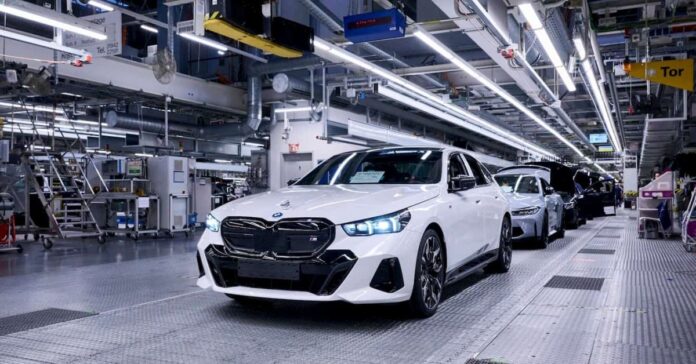German automaker BMW has finally called it a wrap on the production of internal combustion engines, in its own country at least. Now its main Bavarian plant will be converted for the production of EVs only, while the company relocates its ICE production to the UK and Austria.
BMW, unlike its rivals, hasn’t committed to a firm date for when it plans to discontinue petrol and diesel vehicle production and has remained relatedly skeptical about the whole thing. Its plan, rather, is more about its electric and petrol cars happily coexisting, with heavy investments being poured into both (and this includes diesel engines too). Still, it’s a big step for the old guard – its Bayerische Motorenwerke in Munich has been cranking out polluting vehicles for 60 years, with the final engine being put together this month. BMW announced the plan to convert the plant to all-EV production back in November 2020 and is investing €400 million to make it happen.
Still, to keep its ICE production up and running, BMW is relocating those efforts to plants in Austria and the UK. In a report spotted by Carscoops, the 1,200 employees who worked in ICE construction in Munich will now be retrained and moved to other areas, either working on EVs at the Munich factory or other locations. German news outlet BR reports that the BMW Steyr plant in Grez, Austria, is the likely home for V8 engine production, while England’s Hams Hall factory, outside of Birmingham, will take on the lion’s share of other combustion engines.
The all-electric BMW i4 has been built in Munich since October 2021, and it’s reported that the Neue Klasse will be made there from 2026. As for other models, the iX, i7, and next-gen i5 are made in Dingolfing, with the iX1 and iX2 electric SUVs put together in Regensburg. Considerable investments are going into its e-mobility sector, with a battery test center being built at the BMW site in Wackersdorf, which will test high-voltage batteries and other e-drive components. Also, plans are underway to construct an additional battery factory in the area.
Yet while working to boost its electric vehicle numbers, BMW has said it aims for 50% of its total sales to come from ICE vehicles in 2030, the same year rivals are targeting for their all-electric transition.


